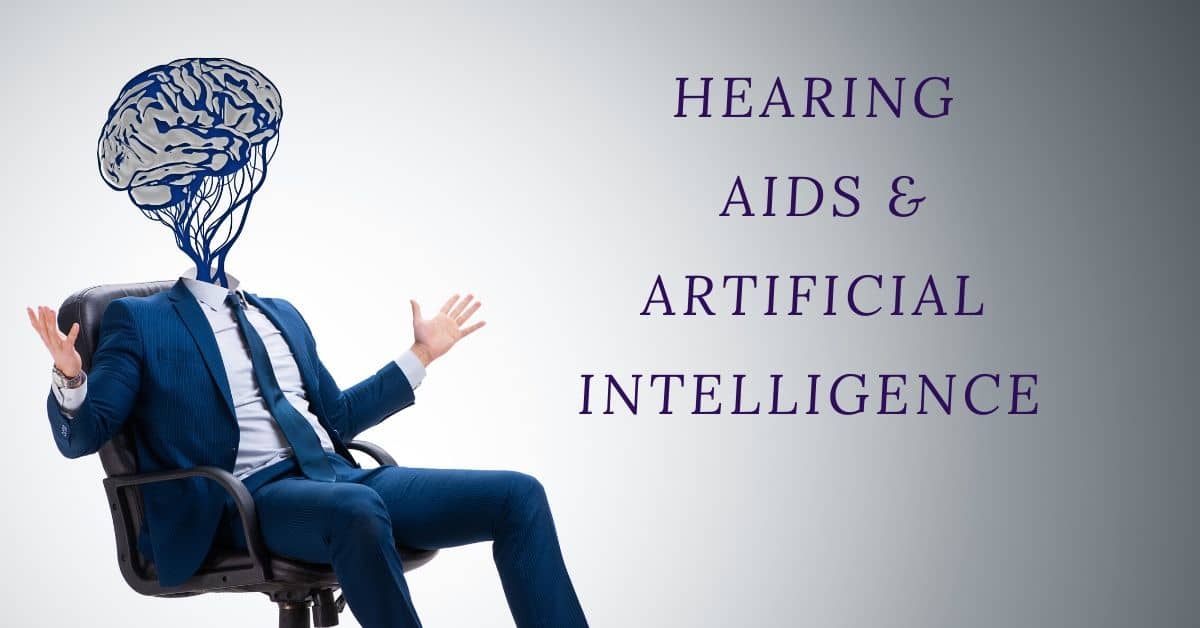When you hear someone mention Artificial Intelligence, or AI, your mind instantly goes to self-driving cars, or the plot of a sci-fi movie where robots take over the world. AI technology is a very long way away from world domination, but Artificial Intelligence is being effectively used for a variety of solutions to make people’s lives better. For example, AI software is being used in Google Maps to determine best driving routes, email spam filters to automatically sort your emails based on your preferences, and facial recognition in photos on Facebook. AI is also finding a foothold in the hearing aid industry, and AI is making it easier than ever to hear clearly.
Hearing Aids and AI
AI is the technology that allows a computer to learn from the input it receives. This process is called machine learning, and just like sorting emails, it will learn from past selections to make future decisions or suggestions. Using face recognition as an example, the program will analyze the face of the friend you tagged as “Sam”, and will be able to recognize that face in the future. Next time you post a picture of Sam, AI will suggest that you tag him in the photo.
If you have a hearing aid that connects to your smartphone via Bluetooth technology, your hearing aids will have access to a computer: your phone. This can provide AI software for your hearing devices. They’ll have the ability to learn your preferred programs and settings, and adapt to how you want to hear.
Hearing Aid Programs That Use AI
Some hearing aids are already incorporating AI into their designs, though as a whole the hearing aid industry is far behind others in utilizing AI technology. Current AI hearing technology can learn from how you adjust hearing aid settings in certain sound environments. Each time you adjust the settings using your smartphone, you’ll be training the AI. The AI will remember preferred settings for the quiet of your living room, or the noise in the grocery store, and automatically adjust the settings to match your unique hearing preferences.
Hearing Aids with AI Provide Better Sound Quality
Hearing aids are designed to help you hear all the sounds around you, and provide natural, rich hearing that maintains all the nuances of the sounds around you. However, the sounds in your environment come from near and far, and from a variety of sources. Some of these sounds are background noise, and others are the sounds we really want to hear. With normal hearing, it’s easy to filter all these layers of sound, but with hearing loss sounds can blend together, and lose their crisp, clear quality.
Artificial Intelligence can provide better sound quality. Advanced processing can learn your preferences, separate all the layers of sound, and mimic natural hearing. Rather than blocking out background noise, it can simply reduce this sound, and you’ll be able to focus on important speech sounds without losing the richness of the sound around you.
The Future of AI Technology in Hearing Aids
Artificial Intelligence in hearing aids is making great leaps forward in the field of health monitoring. Some hearing aids are being developed that incorporate health monitoring AI technology into the hearing aid. This technology works better than a Fitbit or Smartwatch because the ear is a better place to take readings such as heart rate and breathing rate. This AI software can display these metrics on a smartphone app, or even send a notification to a friend or family member if it detects an abnormal breathing or heart rate. For elderly hearing aids wearers, this AI technology could provide added security and peace of mind to both the hearing aid wearer and their family.
Are you hearing aids going to take over the world? We don’t think so, but they will get even better at helping you hear. One of the most exciting new developments in AI, is technology that would easily learn which sounds or voices you want to focus on, and effortlessly filter out background noise. Even if the voice you’re listening to isn’t right in front of you, AI could help you focus on the sounds you want to hear in a whole new way.


